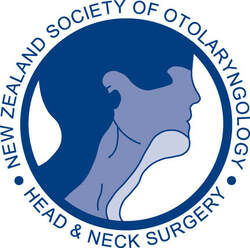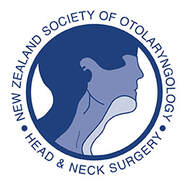Professor Andrew HillProfessor of Surgery, The University of Auckland, Auckland, NZ
Andrew Hill, as Professor of Surgery and Colorectal Surgeon at the University of Auckland, has established an internationally recognised research group in peri-operative care at Middlemore Hospital in South Auckland, and has made seminal contributions to understanding of the metabolic response to surgery.
He has >300 peer-reviewed publications, most in the areas of peri-operative care or medical education. His work has been published in the top journals in their fields, including JAMA Surgery, Annals of Surgery, the British Journal of Surgery and the British Medical Journal. His research has been supported by the Health Research Council, the Auckland Medical Research Foundation, the Royal Australasian College of Surgeons (RACS) and by philanthropic donations. |
This body of work was recognised by the award of the premier research award of the RACS, the John Mitchell Crouch Fellowship, in 2014. He is regularly invited to speak at meetings in Europe, USA, Asia, and Australia and New Zealand, is a reviewer for >30 journals (including the BMJ, Lancet, Medical Education, JAMA Surgery, British Journal of Surgery, Annals of Surgery), and reviews for research funding organisations in the Netherlands, UK, Italy, Canada, the USA and Australasia. He serves on eight editorial boards (including JAMA Surgery, Diseases of the Colon and Rectum, and the World Journal of Surgery) and is a section editor of the ANZ Journal of Surgery.
He plays a major role in research supervision and leadership. He has supervised over 20 doctoral students, including the mentoring of multiple Maori and Pacific junior doctors in clinical research. His research students have received >30 awards locally and internationally, including two Fulbright Scholarships. He plays key roles in Australasian surgical leadership: as an RACS councillor and as chair of the RACS Research and Academic Surgery Committee. He has acted as scientific convenor of conferences in Australasia, Asia and Europe. He is the immediate past President of the International Society of Surgery.
He plays a major role in research supervision and leadership. He has supervised over 20 doctoral students, including the mentoring of multiple Maori and Pacific junior doctors in clinical research. His research students have received >30 awards locally and internationally, including two Fulbright Scholarships. He plays key roles in Australasian surgical leadership: as an RACS councillor and as chair of the RACS Research and Academic Surgery Committee. He has acted as scientific convenor of conferences in Australasia, Asia and Europe. He is the immediate past President of the International Society of Surgery.
Mentoring of Surgical Trainees
Many junior doctors cannot identify a mentor and yet 75% believe that career counselling is essential. Proteges of mentors are more successful in their careers than non-mentored individuals.
Qualities of good mentors include generosity with time, an emphasis on building relationships, and promotion of professional growth. Assignment of mentors to mentees is generally not effective. Compatibility is very important. Departments should seek to provide an atmosphere where mentor-mentee relationships can develop naturally. Mentoring has benefits for both mentor and mentee.
Many junior doctors cannot identify a mentor and yet 75% believe that career counselling is essential. Proteges of mentors are more successful in their careers than non-mentored individuals.
Qualities of good mentors include generosity with time, an emphasis on building relationships, and promotion of professional growth. Assignment of mentors to mentees is generally not effective. Compatibility is very important. Departments should seek to provide an atmosphere where mentor-mentee relationships can develop naturally. Mentoring has benefits for both mentor and mentee.




